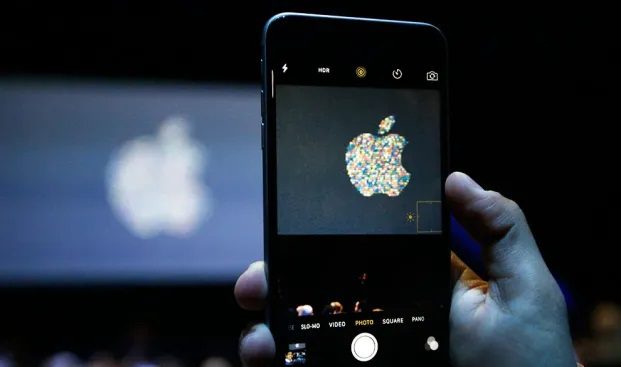The Federal Antimonopoly Service of Russia (FAS) concluded that Google, the owner of YouTube, is harming users' interests and restricting competition in related markets.
The agency criticized the rules of the video hosting platform for blocking content as biased and unpredictable. The amount of the fine will be decided during an administrative investigation. The Director of the Safe Internet League, Ekaterina Mizulina, suggested in an interview with Sekret Firmy that the fine could reach up to 15% of the IT giant's revenue in the video hosting market.
The FAS began a case against Google in April 2021. The reason was a statement from the Regional Public Center for Internet Technologies (ROCIT), which approached the FAS in December 2020. Additionally, in December last year, the IT giant became the first company in Russian history to receive a turnover fine of over 7.2 billion rubles for repeated failure to remove prohibited information.
Google is not the only company that has faced complaints from the regulator. Apple, Samsung, and Microsoft have also received attention from the FAS. The Forbes material provides details on which other technology corporations have conflicts with the service, what claims were made, and the current stage of the proceedings.
The FAS has made claims against Google in the past. In September 2015, the agency found the IT giant guilty of abuse of dominance. The case was initiated in February after a statement by Yandex: as the owner of the Android operating system, Google prohibited mobile device manufacturers from pre-installing competing applications, including search from Yandex. The FAS imposed a fine on the company and issued an order to rectify the violations. After 2.5 years, Google paid a fine of 450 million rubles.
Apple
In December 2016, the Federal Antimonopoly Service opened a case against Apple after a citizen who could not replace the smartphone display at the service center approached the department – he was told to pay an extra 22,000 rubles and get a new phone. On February 20, 2017, the FAS instructed the Russian division of Apple – Apple Rus LLC – to establish a single service center by May 1.
In 2017, the Federal Antimonopoly Service also found Apple Rus LLC guilty of price coordination for the iPhone 5 and 6 in Russian retail chains. The case was launched in August 2016 following a citizen's complaint about similar prices for the iPhone in multiple stores. In June 2017, the FAS fined the Russian subsidiary of Apple 1.75 million rubles.
Another case against Apple was started in October 2021. The company had not complied with a warning about not informing App Store app buyers about alternative payment methods.
Microsoft
Microsoft caught the attention of FAS employees in 2016 following a complaint from the anti-virus software developer Kaspersky Lab. The Russian company was dissatisfied because the time for ensuring compatibility of third-party anti-virus software with the Microsoft operating system was reduced to six days from two months. In August 2017, the case was closed as the company rectified the violations, and no penalties were imposed.
Lenovo and HP
At the beginning of 2017, the FAS opened a new cartel case in the purchase of Lenovo and HP computers for government agencies in the amount of 2.2 billion rubles (the first was initiated in November 2016). Among the customers of the products were the Central Election Commission, the Ministry of Internal Affairs and the FSB, but the antimonopolists had no complaints against them. By law, the coordinator of the cartel, Hewlett Packard, will have to pay a fine in the amount of 1 million to 5 million rubles.
LG
In 2018, the Federal Antimonopoly Service found LG’s Russian subsidiary, LG Electronics RUS LLC, guilty of coordinating prices for smartphones. To monitor retailers’ prices and control them, LG used a special algorithm program. The South Korean company received a fine of 2.5 million rubles.
Samsung
Similar claims arose from the antimonopoly service and to Samsung. In 2019, the FAS found guilty the Russian structure of the company, Samsung Electronics Rus Company, of illegally coordinating prices for smartphones and tablets, which the company was engaged in together with retailers. The case was opened in February following an unscheduled on-site inspection conducted in 2018. According to the Federal Antimonopoly Service, Samsung’s subsidiary coordinated the economic activities of several companies, including M.Video, Svyaznoy, Eldorado, Ulmart, Citylink, Beeline and MTS. FAS imposed a fine of 2.5 million rubles on the company.
Booking
FAS opened a case against Booking.com at the end of December 2019 after a complaint from the Opora Rossii business association. The Antimonopoly Service found that Booking.com imposed on Russian hotels, hotels and hostels the mandatory “provision and observance of parity of prices and rooms, as well as conditions for interaction with closed user groups.” “For hotels, this meant that they could not set the price for their services in other sales channels lower than on the Booking.com aggregator,” the FAS explained. As a result, the agency fined Booking.com 1.3 billion rubles for “abusing its dominant position” in the Russian market.




